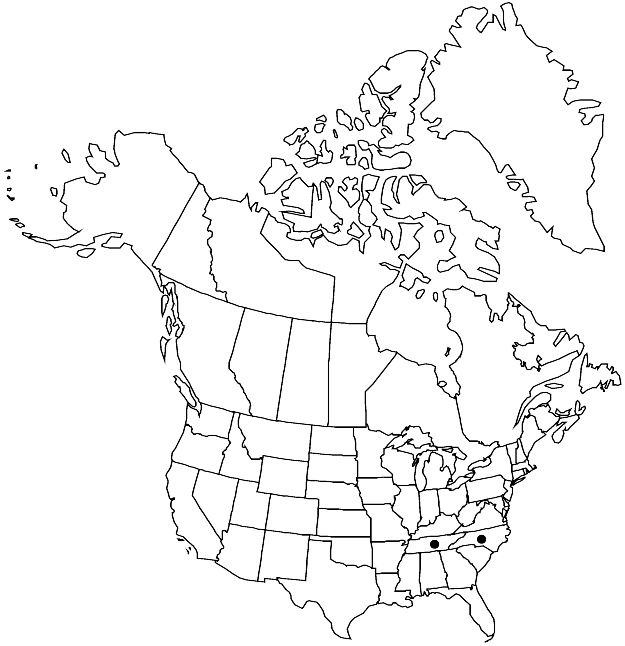Philonotis cernua
Bryologist 92: 376. 1989.
Plants small, delicate, in lax to dense tufts, glaucous or yellowish throughout. Stems 0.5(–2) cm, erect, simple; tomentose proximally. Leaves laxly erect-appressed, sometimes somewhat secund when dry, erect-spreading when moist, lanceolate, 0.5–1 mm; margins plane to weakly revolute, serrulate distally, teeth single; apex acute to acuminate; costa percurrent, abaxial surface rough; laminal cells prorulose at one or both ends; basal cells similar to distal cells, wider (6–8 µm); distal cells rectangular, 20–30 × 4–6 µm. Specialized asexual reproduction absent. Sexual condition synoicous. Seta 0.5–1.5 cm, curved. Capsule 0.8–1.5 mm, smooth to irregularly wrinkled when dry. Spores reniform, 36–44 µm.
Phenology: Capsules mature Mar–Oct.
Habitat: Wet acidic rock in mountains
Elevation: moderate elevations (1200-1500 m)
Distribution

N.C., Tenn., Mexico, Central America, South America, w Europe (United Kingdom).
Discussion
Philonotis cernua is a diminutive species that is identified by its synoicous sexual state, globose, smooth to irregularly wrinkled capsules, and lack of a peristome.
Selected References
None.